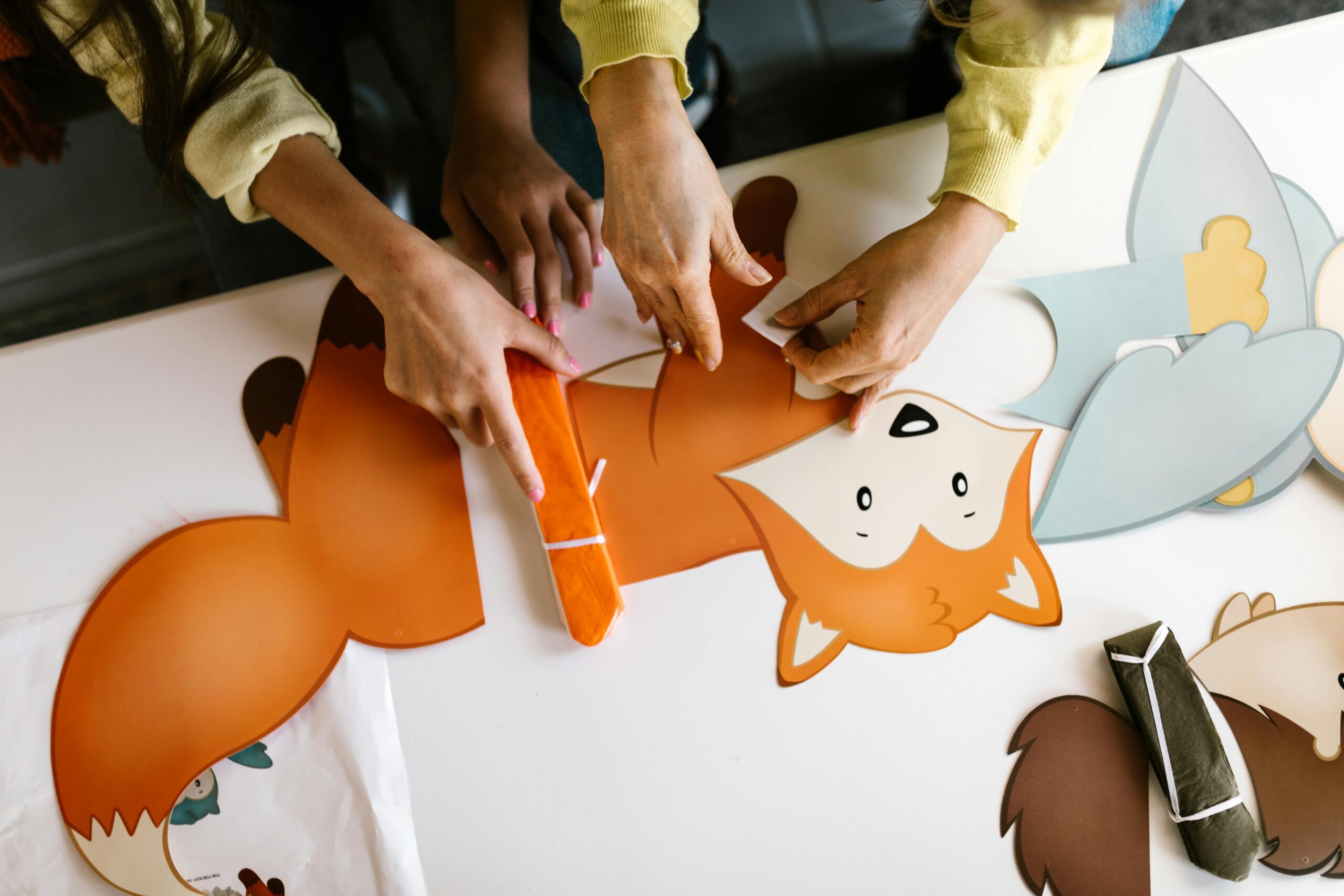Introduction
Parenting Science is a diversified field with a scientific approach to child-rearing. Through psychology, neuroscience and sociology research, parenting science aims to learn the most effective methods to nurture children’s physical, emotional and cognitive development. Interdisciplinary study, ranging from attachment theory to positive discipline strategies, gives us instruments parents can use to positively contribute to children’s development. Click here
Understanding Holistic Development in Children Parenting Science
The all-around improvement of children involves practising multiple capacities, including body, feelings, social, and cognitive, simultaneously. It’s not just these academic results or specific skills being taken care of; you are building a decent individual and a good citizen. Parents empower children to grow their inner dimensions, and the environment must be secure and beautifully diversified for study and play. Stimulation for activities promoting creativity, emotional intelligence, physical health, and social skills may yield surprising development in a child’s career. Parenting Science
Knowledge that different categories of development are interwoven and, therefore, crucial in leading the all-round development of children is the focal issue to be handled. For instance, when students engage in physical activities such as sports alone, they will improve their motor skills and benefit from increased self-esteem and social interaction. Another common benefit of art is that it boosts cognitive functions when designing or listening to music. However, it also allows for the creative expression of one’s emotions.
The Role of Nutrition in Child Development
Nutrition shows up in child development as it directly impacts child growth, mental health, and the overall state of a child. Parents must guarantee their children get enough nutritious foods containing proteins, vitamins, minerals and healthy fats. These nutrients are critical for brain development and strengthening of the immune system function in children.
Studies on parenting science have determined the effect of childhood nutrition on the body and the children’s brain development. For example, iron and vitamin D deficiency can cause growth and development problems and learning difficulties. Parents must see that their children’s diet is balanced because it ensures that their children will develop well from their childhood.
Importance of Emotional Intelligence in Parenting
Parents with emotional intelligence competence are ready to face the complex and primarily tricky parenthood. Parents can build an atmosphere that helps children develop and become stronger emotionally by being sensitive to their feelings and their children’s feelings. Secondly, it enables them to react calmly and wisely to difficult circumstances, teaching their children the appropriate emotional coping strategies.
Along with emotional intelligence, in parenting, one should also have an insight into each kid’s specific needs and feelings, resulting in a more personalised and empathetic approach to interactions. It allows parents to experience empathy, validate the child’s feelings and help them with adverse emotions. This, at last, makes the relationship between a parent and a child more reliable, which in turn creates trust and contributes to a secure attachment that is highly significant for a child’s overall development.
Encouraging Physical Activity and Playtime
Encouraging physical activity and playtime among children has physical gains and mental and emotional benefits. Science revealed that physically active children improve mood, self-esteem, and cognition. Parents can foster a strong affinity for exercise among their children by including entertaining and fun-filled exercises in their daily routines. Click now

A suitable method of promoting exercise is to take part in it yourself. Children tend to imitate their parents’ behaviours; hence, being active together as a family will set an example that promotes healthy habits from a young age. Another essential element of encouraging playtime is providing various activities to prevent kids from getting bored and sustain motivation. From outdoor games such as tag or soccer to indoor dances or yoga, mixed activities can keep kids interested in staying active. Parenting Science
Fostering Cognitive Development Through Learning Activities
A routine that includes learning activities is one to implement when creating a child’s cognitive development. Parents may want to include their children in brain-stimulating activities to boost brain function and problem-solving capacity. Things like puzzles, reading time, and fun time with your lovely one can make your brain connect, and even in such a situation, you can improve your brain power.
According to the research outcomes, interactive activities such as cooking, games or being in the open air promote cognitive functions by intensifying memory, attention span and critical skills. Suppose these activities are included in the family practice routine. In that case, it helps children learn intellectually and creates a stronger parent-child bond and, simultaneously, a shared learning experience.
Balancing Screen Time and Outdoor Exploration
One main factor in balancing screen time and outdoor exploration is knowledge of both benefits for children’s development. Although screens provide educational content and recreation, outdoor play offers an opportunity to interact with the environment, develop physical skills/abilities and experience nature firsthand. The scientific investigation of parenting techniques reveals that achieving the right mix of these activities contributes to children’s overall welfare.
A meaningful way parents can foster outdoor discovery is to integrate it into their regular activities and limit the time kids spend in front of screens. Tending to such an equilibrium will help children acquire various skills, such as critical thinking and creativity, among many others. Similarly, adventure with the family outside is a powerful way to foster family cohesion and build lasting memories for the kids.
Conclusion
Accordingly, a holistic approach is fit for complete children’s development because it focuses on the whole person, including their physical, emotional, mental, and spiritual health. Through different levels of parental involvement in making them a resilient and self-sufficient child, parents contribute to developing all aspects of their children. Stimulating vocalisation, providing support, and working on forming personality are considered significant aspects of holistic parenting.
It is also crucial for parents to understand that there is a harmonious balance in children’s lives that ultimately leads to a healthier adult. Thus, this view of parenting might be a successful way to bring up generations that healthy relationships, higher grades and the overall quality of life would characterise. Let’s be steadfast parents who pursue integrative approaches to create an excellent future for our children. Parenting Science
FAQs
1. Which factors can be considered as instruments to improve the overall development of my child?
Answer: Promote integrating physical, emotional, social, and cognitive activities as your son’s best growth methods.
2. In what way does the issue of nutrition influence the issue of overall development?
Answer: Nutrition serves human health functions by supporting brain development and throughout the whole body in children, as the entire child’s development is holistic.
3. To figure out how vital playing for holistic development is being of universal interest.
Answer: Games are crucial in child development as they provide great opportunities to develop social skills, creativity, problem-solving capacities and physical strength.
4. Is it regardless of whether this time should be restricted for comprehensive development?
Answer: Too much screen time can lead to unharmonic communication and sports skills. Development Therefore, it is necessary to set limits on the duration of screen time and encourage other activities.
5. How are children made emotionally intelligent? What are some strategies?
Answer: Create an atmosphere favouring open communication; let the children learn about empathy and self-regulation skills and provide them with an emotionally safe space to talk out.
For more Articles, Click here.


